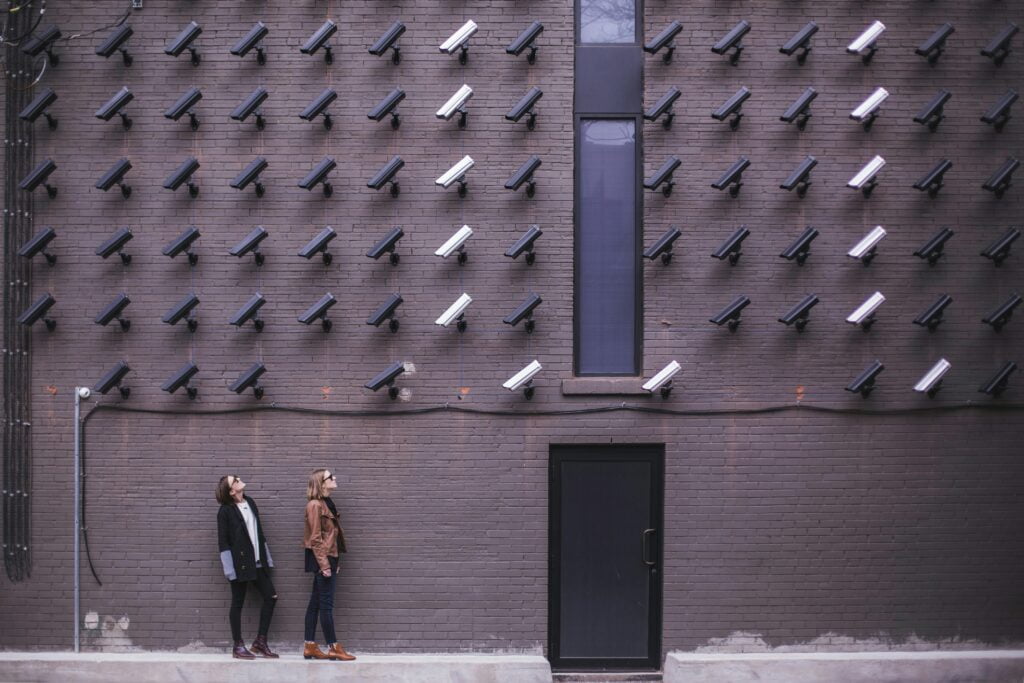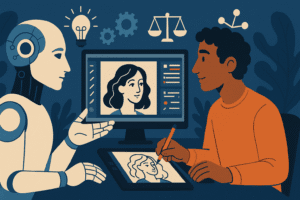
Facial recognition technology has become increasingly prevalent in surveillance systems around the world. While it offers potential benefits in terms of public safety and crime prevention, there are also significant ethical concerns that need to be addressed. In this blog post, we will explore the ethical implications of facial recognition technology in surveillance and discuss the need for proper regulation and safeguards.
The Facial Recognition role
Facial recognition technology’s role is to identify or verify individuals from digital images or video frames. It analyzes unique facial features for security, surveillance, authentication, or personalized experiences.
The Invasion of Privacy
One of the primary ethical concerns surrounding facial recognition technology in surveillance is the invasion of privacy. By capturing and analyzing individuals’ facial features without their consent, this technology has the potential to infringe upon personal privacy rights. People should have the right to go about their daily lives without being constantly monitored and tracked.
Moreover, facial recognition technology has the potential to be abused by both government agencies and private entities. It can be used to track individuals’ movements, monitor their activities, and even identify them in real-time. This level of surveillance raises serious questions about the balance between public safety and personal freedom.
Biased and Discriminatory Practices
Another ethical concern with facial recognition technology is its potential for biased and discriminatory practices. Studies have shown that these systems are often less accurate in recognizing faces of people with darker skin tones and women. This inherent bias can lead to false identifications and unjust consequences, such as wrongful arrests or mistaken identities.
Furthermore, the use of facial recognition technology in surveillance can disproportionately target certain communities, such as minority groups or marginalized populations. This can perpetuate existing biases and reinforce systemic discrimination. It is crucial to ensure that these technologies are developed and implemented in a fair and unbiased manner to prevent further harm.
Lack of Transparency and Consent
Transparency and consent are essential when it comes to the use of facial recognition technology in surveillance. However, there is often a lack of clear guidelines and regulations regarding its deployment. Many individuals are unaware that their images are being captured and analyzed, leaving them vulnerable to potential misuse.
Additionally, facial recognition technology is often used in public spaces where individuals have limited control over their exposure. This raises questions about consent and the right to be informed about the collection and use of personal data. It is crucial for organizations and governments to be transparent about the use of facial recognition technology and seek consent from individuals whenever possible.
The Need for Regulation and Safeguards
To address the ethical concerns surrounding facial recognition technology in surveillance, there is a pressing need for proper regulation and safeguards. Governments and regulatory bodies should establish clear guidelines and standards for the use of these technologies, ensuring that they are used responsibly and ethically.
One important aspect of regulation should be the establishment of strict limitations on the use of facial recognition technology. It should only be deployed for legitimate purposes, such as public safety and crime prevention, and not for indiscriminate surveillance or monitoring of individuals.
Additionally, there should be independent oversight and accountability mechanisms in place to prevent misuse and abuse of facial recognition technology. Regular audits and assessments should be conducted to ensure compliance with ethical standards and to address any potential biases or inaccuracies.
Furthermore, organizations and governments should prioritize transparency and consent when using facial recognition technology. Individuals should be informed about the collection and use of their facial data and given the option to opt-out whenever possible. This can help build trust and ensure that these technologies are used in a manner that respects individuals’ privacy rights.
Conclusion
The ethics of facial recognition technology in surveillance are complex and multifaceted. While it has the potential to enhance public safety, it also raises significant concerns regarding privacy, bias, and consent. To ensure the responsible and ethical use of these technologies, it is crucial for governments, organizations, and individuals to come together and establish clear regulations and safeguards. By doing so, we can strike a balance between public safety and personal freedom while upholding the principles of privacy and equality.







